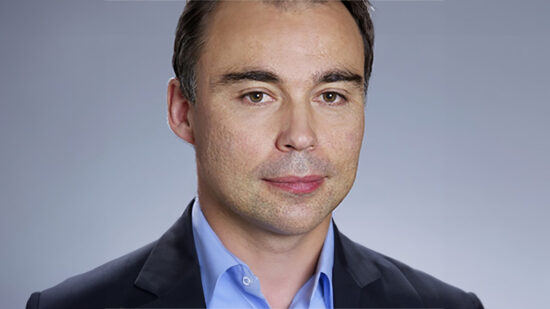A number of investment positions later, including spells as an analyst with WI Carr, Paribas, HSBC and UBS, based variously in Hong Kong, Singapore and Jakarta, he set up London-based boutique investment manager Cerno Capital with business partner Nicholas Hornby, who had a similar background to him.
“When I arrived at that final perch in institutional brokerage, I was involved with what we termed ‘micro strategy’. It’s understanding markets through their components, through the companies that are part of those markets,” he says.
This approach was followed at Cerno Capital, where Spence focuses on investment from a bottom-up perspective.
“I was fortunate to have a lot of exposure to different asset classes and geographies through my career. My motivation was to work in a manner that reflects all the opportunities within the world, in terms of having flexibility to move between geographies and asset classes. We didn’t want to be tied to just equities or bonds.”
Unusually, the one UCITS fund in Cerno’s stable has no constraint on the level of allocation to asset classes, so could be as low as zero or as high as 100%.
“We want the allocation strategy to reflect logic rather than any kind of mechanical balanced approach. That was the core thinking when we started and remains so today.”
The personal touch
Spence and Hornby calculated once that they had each done in excess of 10,000 meetings with fund managers during the past 20 years, which coincided with the world’s capital flowing to Asia. “We saw all the strategies up-close and personal,” says Spence.
“We drew from that a practical observation that the gift of long-term outperformance is only given to some.”
He also observes that one condition for obtaining outperformance involves “some degree of control over your environment and over the size of assets you are managing”.
“Good asset managers tend to have a great deal of influence over their immediate environment and how their strategy is conducted. They are not in the thrall of the marketing department or commercial pressures. Therefore, the rise of the boutique has been very exciting.”
Getting exposure to different regions sometimes involves allocating to specialist managers rather than directly investing in stock and shares, which Spence explains in relation to Cerno’s long-term positive position on Indian companies.
“We wouldn’t want to buy the stocks ourselves because we believe a high degree of local knowledge is useful. However, we wouldn’t wish to invest in a manager that was just replicating the market.
“Our model approach with India is to go active and look for a manager that invests in mid-cap shares, so the bit below the frontline of the market that would tend to be faster growing than the biggest companies.”
This led to a manager search that resulted in the appointment of Ocean Dial, which runs the Gateway to India fund.
Spence’s view of US assets has also changed since 2008 and the financial crisis.
“Our sense then was that, as the US was first into the crisis it would be first out. Therefore, we were building allocations around US equities using an S&P tracker. We were interested in having a lot of weight in the US but the active management piece was less important.”
But at a slightly later stage in that process he started to allocate partly actively to a manager that only invested in very large-cap US shares, Montag & Caldwell.
Now the US stockmarket is “fairly late in the cycle”, Spence is investing directly in US banks and also allocating money to merger arbitrage specialists because of his belief that the M&A cycle has been improving.
“We’re at the stage in the cycle where we’re going to see a lot more corporate activity. We wouldn’t do M&A strategies ourselves and it’s a good example of where we’d want to allocate capital away.”
Against the IMA flexible sector, Cerno Capital’s US weighting is a little higher than the peer group.
As for Europe, Greece apart, Spence’s growing optimism about the region’s prospects predated the quantitative easing programme announced earlier this year.
“You have to really believe that the European earning cycle will outperform other regions. We’re prepared to think about that constructively vis-à-vis the US but Europe is not our favourite corporate earning cycle in the world. Japan is.”
Big in Japan
Just over one-third of its equity allocation (34%) is in Japan, which Spence says is the “best corporate profit cycle in the developed world”.
“There are a number of self-reinforcing things taking place in Japan that we think will help augment that corporate profit cycle. Some of those predate the re-election of Abe, so we started building up weight in Japan in 2013, and it’s been a large part of our portfolio since then.








